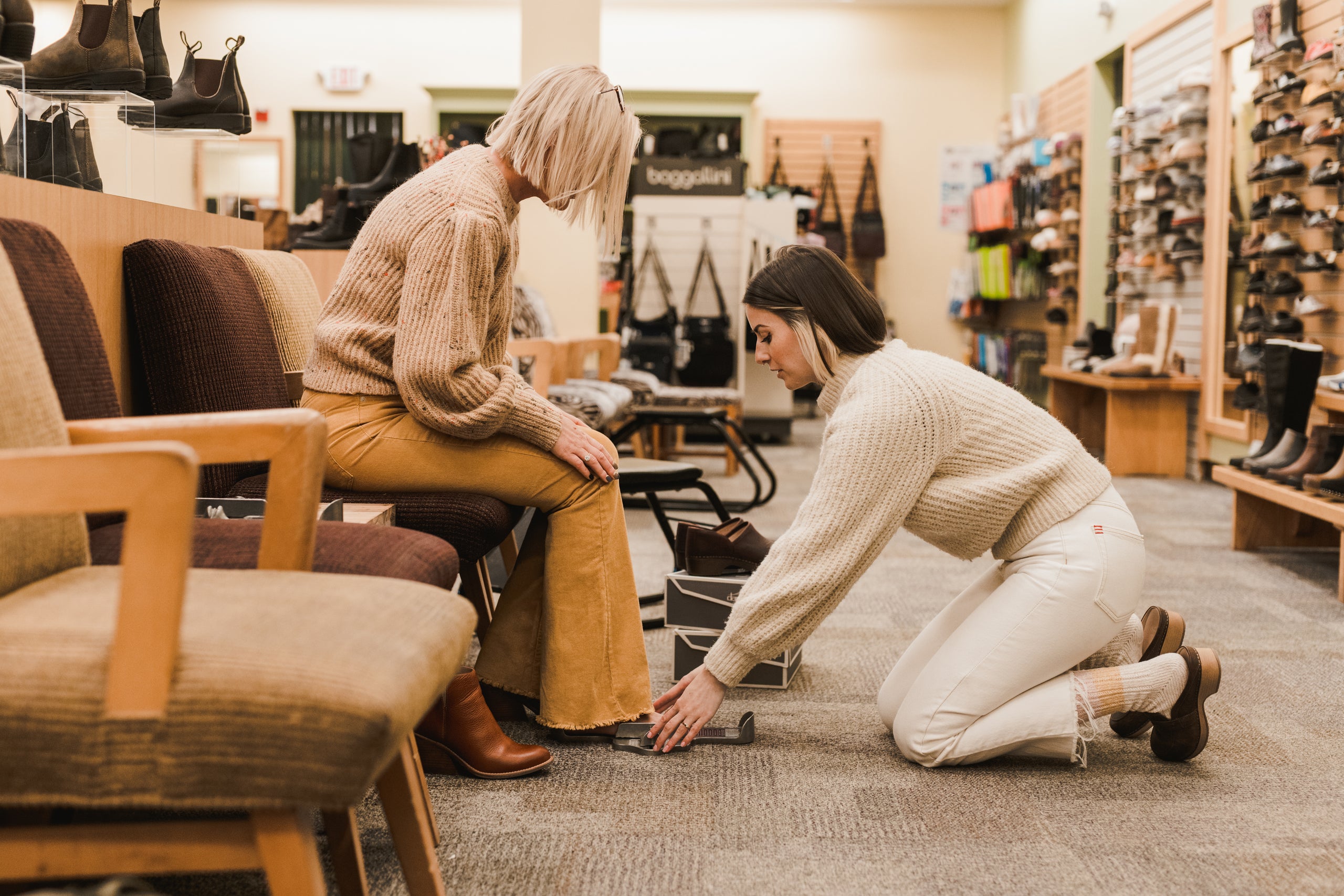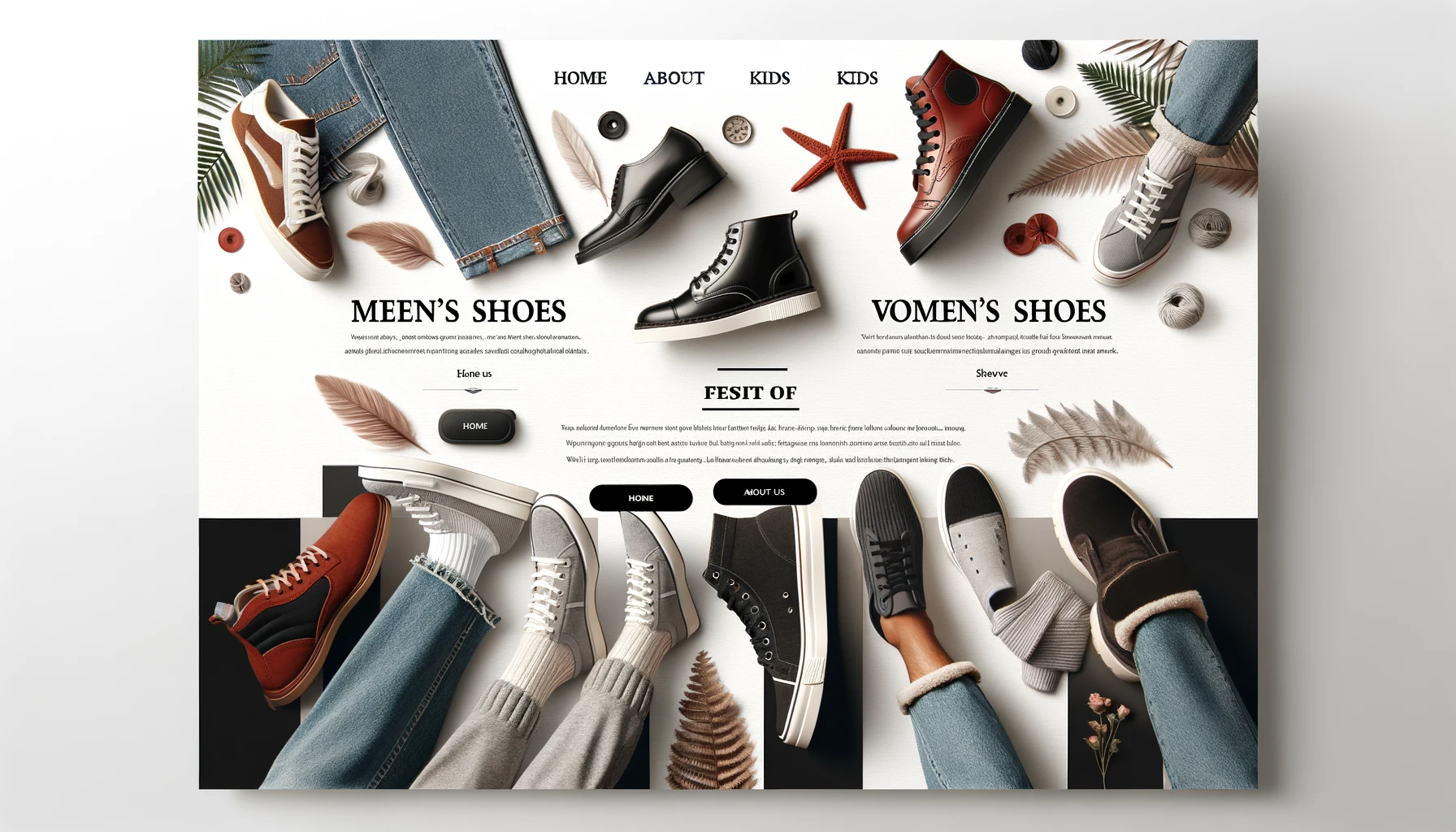Find the Perfect Pair of Shoes at Pandabuy Shoe Store: Shop Now
Find the Perfect Pair of Shoes at Pandabuy Shoe Store: Shop Now
Blog Article
Top Trends in Shoes Ecommerce for 2024: What You Required to Know
As we come close to 2024, the landscape of footwear eCommerce is poised for substantial improvement, driven by cutting-edge patterns that promise to improve customer communications and buying actions. Trick developments such as AI personalization, sustainability campaigns, and the increase of social business are readied to redefine exactly how brands get in touch with their target audiences. Developments like online try-ons and registration versions will certainly further enhance the purchasing experience. Understanding these patterns is crucial for any market stakeholder looking to stay affordable in a quickly evolving market. What implications do these changes hold for the future of footwear retail?
Rise of AI Personalization
The rise of AI personalization in the footwear eCommerce market is reshaping the means customers involve with brands. As stores leverage advanced formulas and artificial intelligence, they can now tailor the purchasing experience to private preferences, improving client satisfaction and commitment. With data analysis, AI systems recognize patterns in consumer actions, making it possible for brand names to offer customized product referrals, promos, and web content.
For example, dynamic item screens change in real-time based on user communication, making certain that consumers are provided snappy that reverberate with their tastes. This level of customization not just improves the purchasing experience however likewise drives conversion prices, as customers are a lot more likely to purchase items that straighten with their choices.
This enhanced interaction promotes a much deeper link between customers and brands. pandabuy. Accepting this trend is essential for brands intending to thrive in the competitive landscape of 2024 and past.

Sustainability in Shoes
Highlighting sustainability in shoes has become an important emphasis for brand names as consumers increasingly focus on eco-friendly techniques. The footwear sector is responding by taking on lasting materials, moral production methods, and clear supply chains. Brands are currently using recycled materials, such as plastic and rubber, to create elegant and durable footwear. This shift not only reduces waste yet additionally interest ecologically mindful customers.
Furthermore, firms are implementing ingenious manufacturing methods that decrease carbon footprints. For instance, 3D printing and automated production procedures reduce material waste and energy usage. Moreover, numerous brands are committing to honest labor methods, ensuring reasonable incomes and risk-free working conditions for their staff members, which reverberates highly with today's socially aware consumers.
To boost sustainability efforts, brands are also concentrating on the idea of circularity. This includes take-back programs that motivate clients to return old footwear for refurbishing or recycling, consequently expanding item life and minimizing landfill waste. As the demand for sustainable footwear proceeds to rise, firms that prioritize green methods will likely obtain an one-upmanship in the marketplace, cultivating brand name loyalty and attracting brand-new clients committed to sustainability.
Development of Social Commerce
Capitalizing on the increase of social networks systems, brand names are increasingly integrating social commerce into their sales techniques, recognizing its prospective to engage customers straight. This fad has transformed how customers uncover and purchase shoes, with platforms like Instagram, TikTok, and Facebook developing right into essential sales networks.
Brand names are leveraging shoppable articles, real-time streaming events, and influencer partnerships to develop immersive purchasing experiences that resonate with their target audience. By using aesthetically appealing content and authentic narration, footwear brands can properly display their items and cultivate a sense of neighborhood amongst consumers.
Moreover, making use of user-generated material informative post has actually ended up being necessary in constructing trust and integrity. When they see genuine people utilizing and backing the products, customers are more likely to buy footwear. This natural kind of advertising and marketing not just improves brand commitment but also drives conversions.
As the landscape proceeds to why not check here advance, footwear brands must stay active, adjusting to the most up to date social commerce attributes while assessing customer habits to enhance their strategies. By embracing this growth, brands can capture the focus of a broader target market, inevitably driving sales and enhancing consumer involvement in the competitive shopping market.
Online Try-Ons and AR
Changing the on the internet buying experience, online try-ons and increased truth (AR) innovations are becoming essential devices for shoe brands in 2024. These technologies permit consumers to picture how shoes will look and fit before making a purchase, dealing with among the most substantial discomfort factors in on-line buying: unpredictability about fit and design.
By leveraging AR, consumers can use their devices or smart devices to see a sensible overlay of shoes on their feet. This immersive experience not only improves engagement yet also substantially decreases return rates, as buyers are extra certain in their choices. With the growing elegance of AR innovation, footwear brand names can create customized experiences, enabling customers to customize shades, patterns, and designs in genuine time.
Additionally, digital try-ons are being incorporated into social networks systems, making it easier for consumers to share their shoes choices with close friends and seek point of views. As consumers progressively anticipate personalized and interactive buying experiences, shoe brand names that embrace virtual try-on modern technology will get an one-upmanship. Eventually, the integration of AR in ecommerce is not just a trend; it is coming to be an essential element of the consumer journey in the footwear market.
Subscription Models and Services

These membership services commonly include tailored tests that analyze specific design choices, dimensions, and requires, making sure that customers get choices that resonate with their tastes. Additionally, numerous brands offer flexible terms, permitting consumers to stop or terminate memberships quickly, additional improving customer complete satisfaction.
Furthermore, subscription versions can help in reducing the decision-making problem connected with looking for footwear, as customers are provided with a selection that lines up with their preferences. This approach not only promotes brand name commitment but also motivates repeat purchases, as customers are most likely to engage with brands that offer convenience and tailored service.
As ecommerce proceeds to progress, the combination of subscription solutions in shoe retail stands out as a critical relocation. It effectively fulfills the demands of modern-day consumers while driving continual profits growth for brand names in a competitive market.
Conclusion
The progressing landscape of shoe eCommerce in 2024 emphasizes the importance of AI customization, sustainability initiatives, and social business as pivotal fads shaping consumer experiences. As brand names progressively take on advanced modern technologies such as virtual try-ons and membership models, the emphasis on boosting customer interaction comes to be critical. These growths not only show transforming consumer preferences yet also indicate a more comprehensive shift towards an extra interactive, responsible, and individualized purchasing environment within the footwear sector.
The surge of AI personalization in the footwear eCommerce field is reshaping the way consumers involve with brand names. Via data analysis, AI systems determine patterns in customer actions, enabling brands to use tailored product referrals, promotions, and content.
Highlighting sustainability in shoes has ended up being an important emphasis for brand names as consumers progressively focus on environmentally friendly techniques. Many brands are dedicating to moral labor practices, making sure reasonable earnings and secure working conditions for their workers, which resonates highly with today's socially mindful customers.
As consumers increasingly expect tailored and interactive purchasing experiences, shoe brands that adopt online try-on innovation will acquire an affordable side. pandabuy.
Report this page